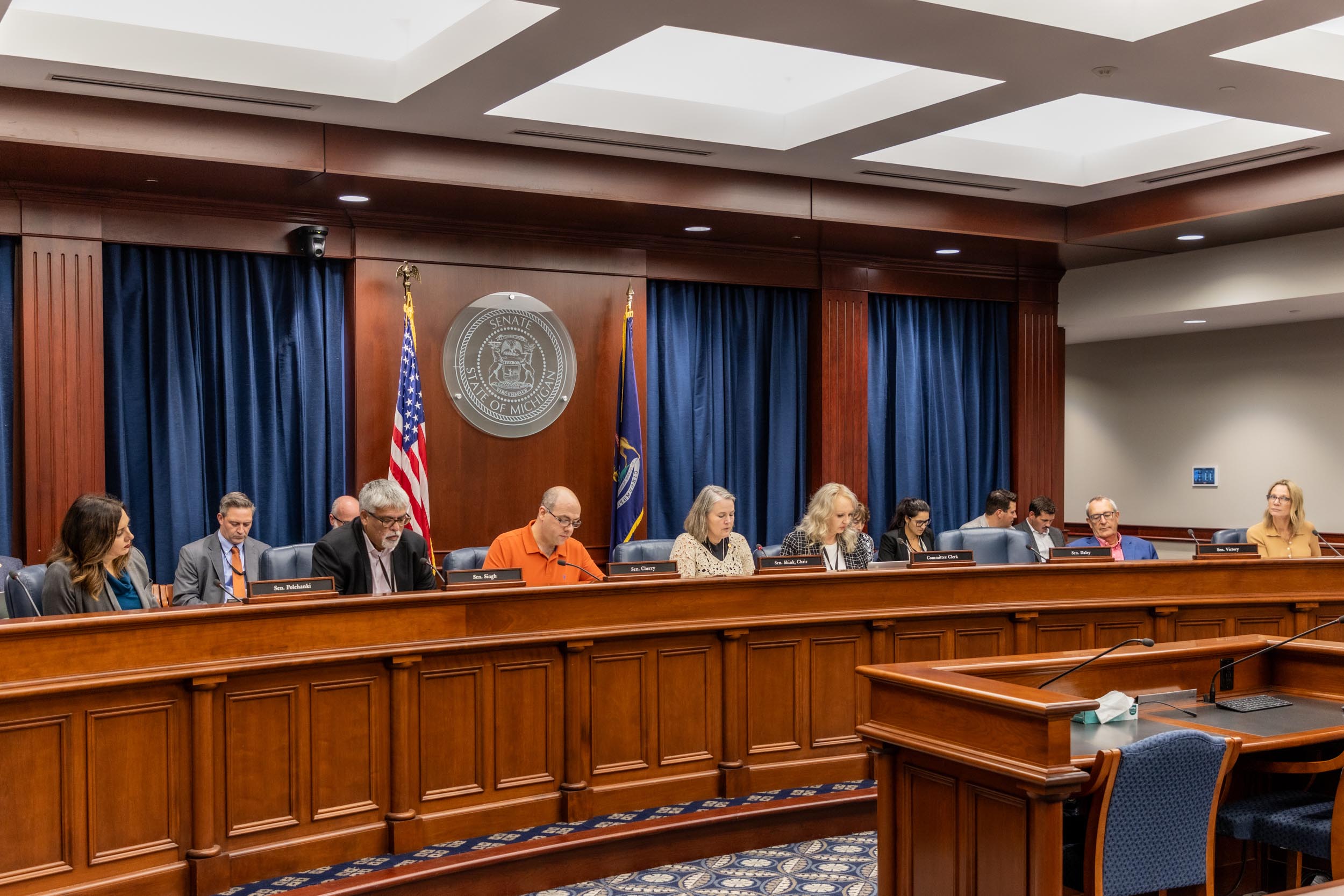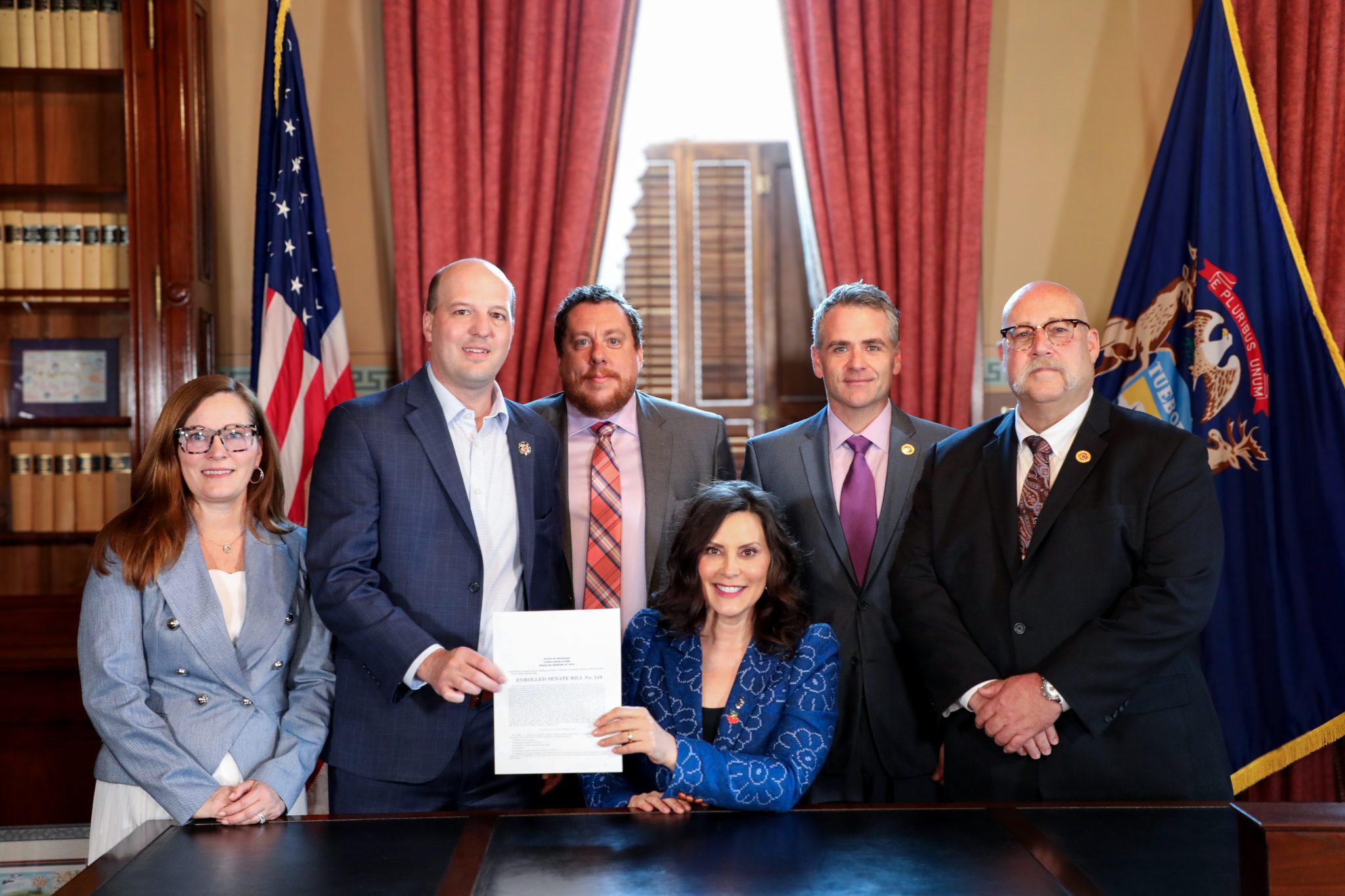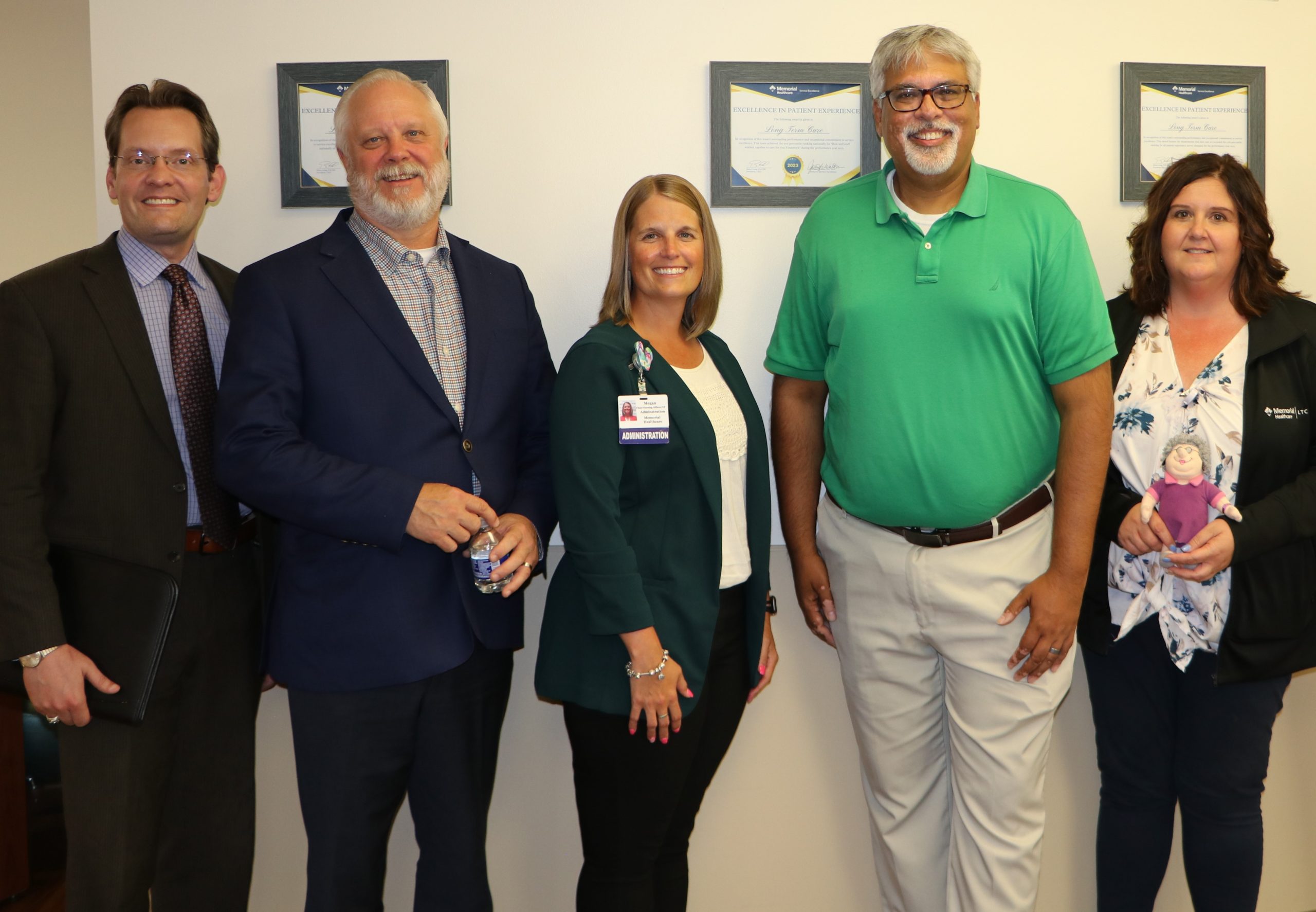Michigan’s rural communities are close-knit, bonded by a sense of pride in place and rooted in connections that, for some, go back for generations. Neighbors not only care for each other, but are also thoughtful stewards of the forests, fields, and waters by which they are surrounded. From the scenic shores of Copper Harbor to the hardworking farm towns of southern Michigan, there is much to cherish and respect about our state’s rural areas.
Whether by restoring our game species and hunting traditions or boosting resources for our local farmers and food producers, Senate Democrats have been working hard to get things done for rural Michiganders.
Protecting Michigan’s Outdoors & Preserving the Traditions that Come with It
As much as there is to appreciate about Michigan’s natural spaces, there is just as much to preserve and protect. Surrounded by abundant woods, waters and wildlife, many folks in our rural communities hold a deep appreciation for nature and a connection to the hunting traditions that Michigan’s great outdoors make possible.
Bipartisan legislation passed this fall by Sen. John Cherry (D-Flint) would help preserve these long-held traditions in our remote areas, specifically for pheasants and the American Woodcock. Senate Bill 803 would maintain huntable numbers of pheasants in game areas by adding a five-year extension to the state pheasant license program. Set to expire in January 2026, this program releases birds into designated hunting areas on state land through funds raised from pheasant hunting license sales. Under Senate Bill 860, the Michigan Dept. of Natural Resources (DNR) would collaborate with stakeholders to set population goals and assess habitat needs to recover the American Woodcock, which has experienced a 50-year decline in Michigan.

Sen. Cherry alongside members of the Senate Natural Resources and Agriculture Committee at a committee hearing on Tuesday, Oct. 1.
“As an avid hunter and outdoorsman myself, I know how important it is to protect our game species and hunting traditions for current and future generations,” said Sen. Cherry. “By extending the successful pheasant license program and ensuring Michigan remains a key nesting state for the American Woodcock, this legislation will enable more of our residents to get outdoors and enjoy hunting — something many across our state cherish deeply.”
Beyond hunting, Michigan’s outdoor spaces offer ample opportunities for residents to explore, unwind, and have some fun. Signed into law earlier this fall, another bill introduced by Sen. Cherry, Senate Bill 817, will make exciting improvements to outdoor recreational opportunities throughout our state thanks to the Michigan Natural Resources Trust Fund. Funding approved with this legislation will support 18 land acquisition projects and 35 development projects, a large part of which will enhance the accessibility of our park facilities, trails, and access to waterways so that people of all abilities can enjoy kayaking, fishing, and all other activities Michigan’s outdoors has to offer. Paired with funding passed in the 2025 state budget for the Michigan Dept. of Agriculture and Rural Development and DNR, these investments underscore Senate Democrats’ commitment to safeguarding Michigan’s natural resources, ensuring present and future Michiganders can enjoy our state’s rich natural heritage.
Ensuring Rural Communities Get the Care They Need, When They Need It
Recognizing that all Michiganders, regardless of their zip code, deserve access to quality care when they need it, Senate Democrats have passed critical health care supports for rural Michiganders.
To address the approximately 1,000 unfilled paramedic roles that put the health of Michigan’s rural communities at risk, Sen. Kevin Hertel (D-St. Clair Shores) worked alongside local firefighters to craft Senate Bill 249, which establishes the Michigan-Only License for paramedics, allowing them to receive accreditation through a state-administered exam instead of only having a national exam option. Signed into law by Gov. Gretchen Whitmer, this legislation cuts bureaucratic red tape, reducing time and financial barriers to becoming a paramedic.

Sen. Kevin Hertel and Matt Sahr, President of the Michigan Professional Fire Fighters Union, join Gov. Gretchen Whitmer as she signs legislation to help combat the state's shortage of paramedics.
Another big win in the health care space for our rural Michiganders was the recent signing of Senate Bill 701, sponsored by Sen. Sam Singh (D-East Lansing), which expands the definition of which hospitals can qualify for funds distributed to the rural hospital access pool. By making some simple technical changes, this legislation will secure more equitable funding for 71 locations in three additional counties and for the only hospital in Shiawassee County — Memorial Healthcare in Owosso.
“It is absolutely critical that our rural hospitals have the funding and resources they need to provide quality care to the Michiganders who rely on them,” said Sen. Singh. “I’m proud to have championed this legislation across the finish line. By making this simple change, we’re better ensuring that residents in all corners of our state are able to access the care they need, when they need it.”

Sen. Singh standing alongside Memorial Healthcare staff. Pictured from left to right: Ben Frederick, Associate Vice President of Advocacy and Government Relations, Brian Long, President and CEO, Megan Smith, Chief Nursing Officer/VP of Patient Care Services, Sen. Singh, and Jaime Abudaya, Director of Nursing/Skilled Nursing Facility Administrator.
Taking Steps to Grow Michigan’s Food Economy
Understanding that Michigan’s rural communities have strong roots in agriculture and food production, Senate Democrats have been advancing efforts to ensure everyone, from our farmers to our smaller-scale food producers, have the resources necessary to grow and lead in their sectors.
This fall marked a victory for Michigan’s beekeepers and maple syrup producers specifically, when Senate Bill 882 passed unanimously on the Senate floor. Also introduced by Sen. Singh, this legislation would increase the annual sales cap for honey and maple syrup producers from $15,000 to $25,000, matching the limit under the Cottage Food Law. Now over to the House for consideration, this bipartisan legislation will break down a critical barrier for these producers and allow them to grow their business beyond what has so far been possible — something that’s not only a welcome change to them, but to Michigan’s agricultural economy as a whole.
Senate Democrats have enhanced Michigan’s food and agriculture industry using the 2025 state budget as a tool as well, funding a new “Farm to Family” program which supports regenerative farming, agricultural supply chains, and brings Michigan-grown crops to dinner tables around the state. We also continued to invest in innovative and mutually beneficial programs like Double Up Food Bucks and 10 Cents a Meal that improve food access and utilize Michigan fruits and vegetables. About $5 million is also included to help bolster Michigan’s agricultural industry to address the impacts of climate change. And, resources were allocated for minority-owned food and agriculture business ventures to build their capacity, whether in expanding agricultural processing or production, developing regional food systems, or increasing access to healthy food.
As Chair of the Senate Natural Resources and Agriculture Committee, Sen. Sue Shink (D-Northfield Twp.) is also no stranger to lifting up issues that Michigan’s rural communities hold near and dear. From protecting and preserving Michigan’s water infrastructure to ensuring our farmers have what they need to be successful, Sen. Shink has been working alongside other state and federal officials to ensure that every community, no matter how remote, has the resources needed to thrive.
“Michigan’s farmers are the driving force behind our local and national food systems. Their dedication to growing high-quality crops strengthens our economy and nourishes our communities,” said Sen. Shink. “It’s important that we continue to support them with the resources and opportunities necessary to grow, innovate and succeed.”
Now and always, Senate Democrats will continue looking out for rural Michiganders and the places and spaces they care about, ensuring our fields and forests and the ways of life they sustain are around for generations to come.
Read more from the Michigan Senate Democrats at SenateDems.com/press.
